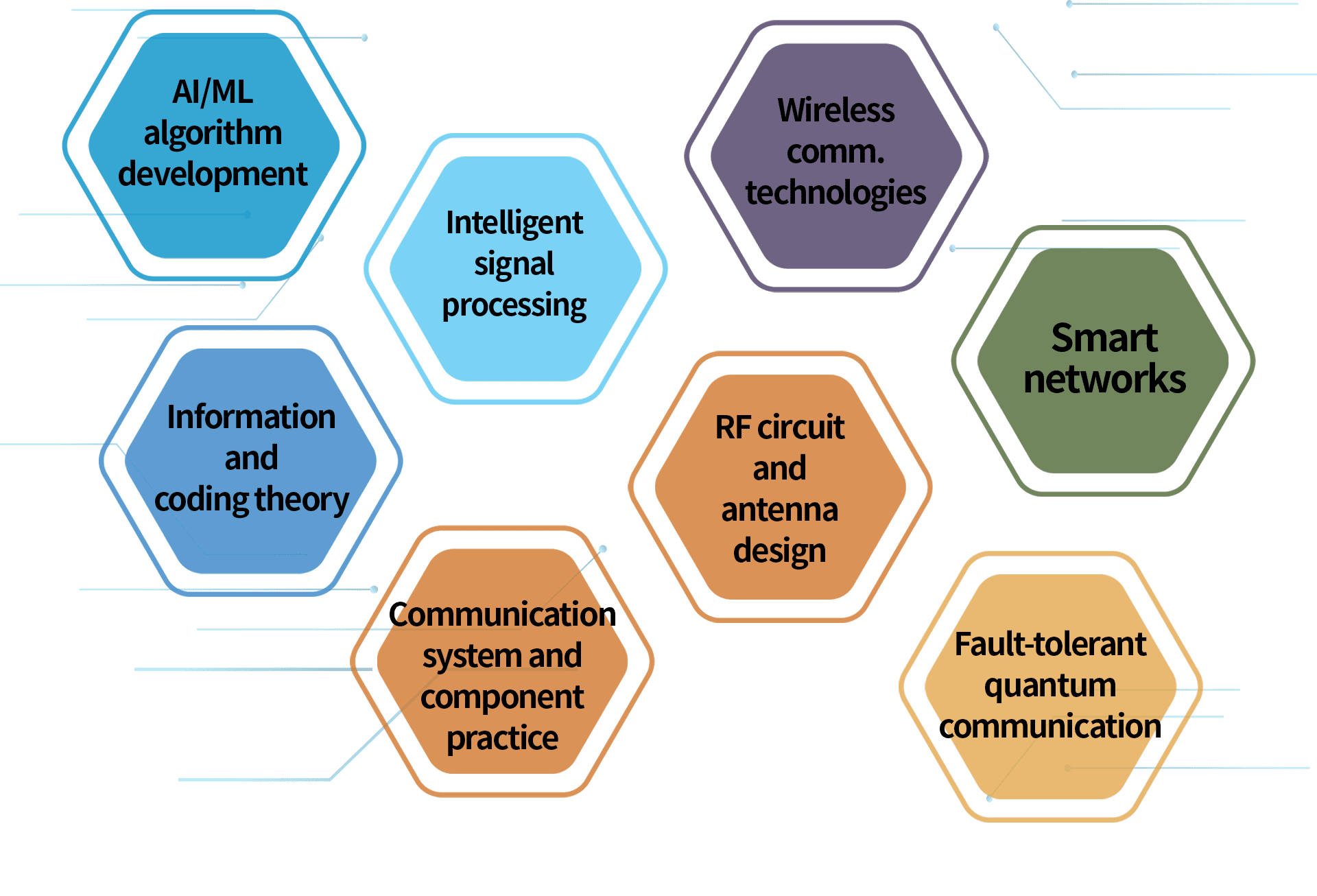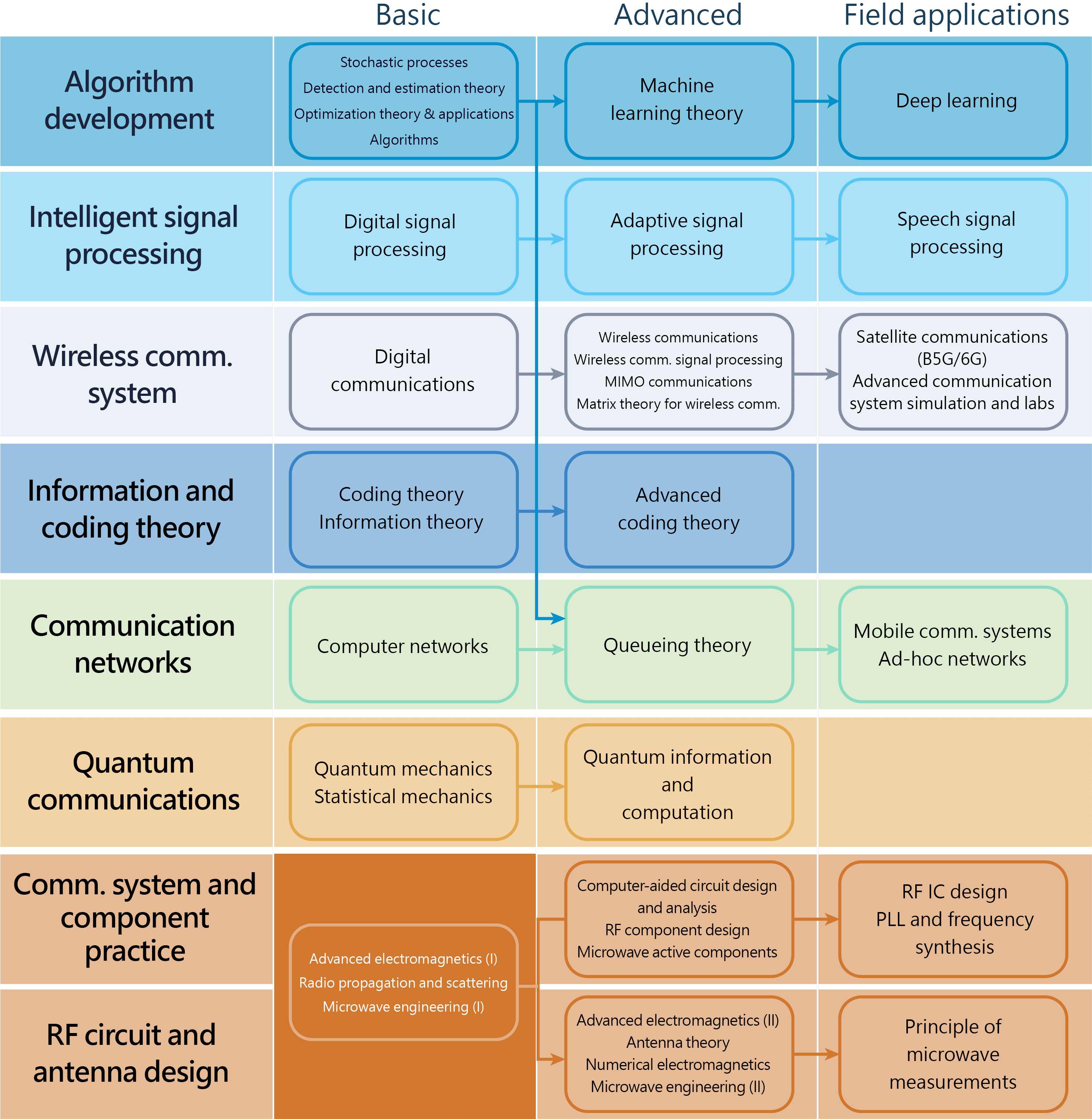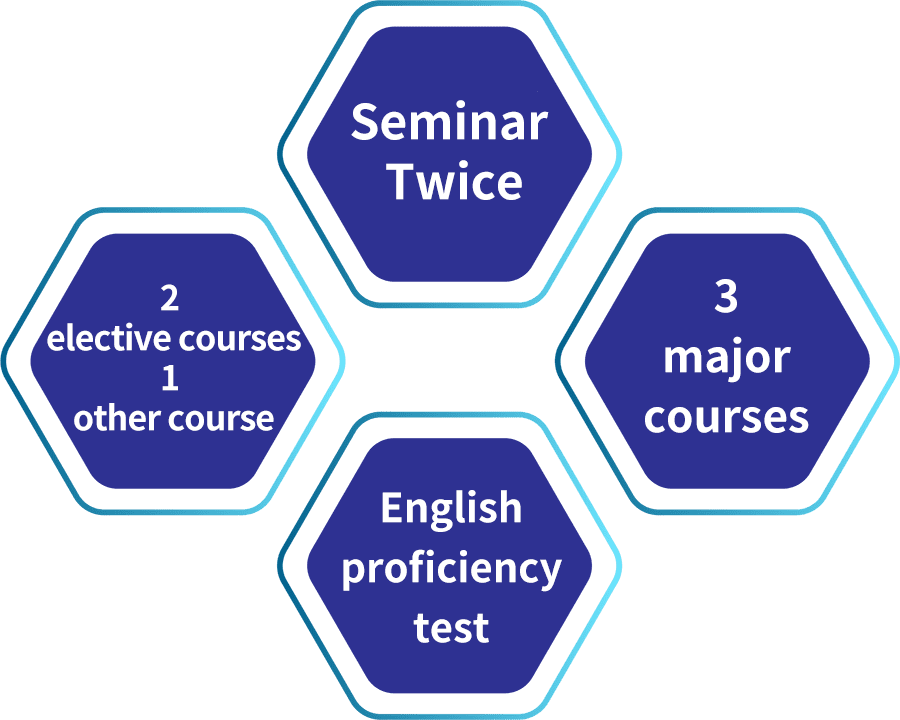-
AI/ML algorithm development:Introduce fundamental mathematical tools in the field of communications, further extending to advanced AI/ML algorithms.
-
Intelligent signal processing:Introduce signal processing techniques in communications, covering fundamental digital signal processing, adaptive signal processing, and specialized discussions on speech and audio signal applications.
-
Wireless communication technologies:Introduces the basic concepts of wireless communications, including wireless channel, modulation, wireless signal processing, and system capacity. Together with some hands-on labs, students can learn wireless communication systems from theory to practice.
-
Smart networks:Introduce the architecture of communication networks, computer networks, mobile networks, and wireless ad-hoc networks. Provide analytical tools such as queueing theory to analyze network latency and congestion.
-
Information and coding theory:Information theory provides the theoretical foundation for network throughput, while coding theory offers functionalities such as encryption, error detection, and correction.
-
Fault-tolerant quantum communication:Provide a solid foundation in the basics of quantum mechanics, and introduce the applications of future quantum communications.
-
RF circuit and antenna design:Introduce the principles of antenna design, crucial electromagnetic applications such as array antenna design, high-frequency circuit, and component design. Provide the foundation for wireless communication in different applications and frequency bands.
-
Communication system and component practice:Introduces the fundamental principles of electromagnetism and emphasize the applications of high-frequency wireless communications, such as microwave and millimeter-wave.


The Institute of Communications Engineering (ICM) at National Yang Ming Chiao Tung University (NYCU) offers eight professional programs that cater to four main research areas in the field of communications. These programs provide a comprehensive introduction to various research areas, ranging from fundamental concepts to advanced topics and research discussions. They allow students at ICM to explore different research issuess within the communications field based on their interests and research themes. The introduction to each specialized program is provided as follows:

Graduation requirements:
In addition to the professional programs offered by ICM, NYCU provides the best courses in electrical engineering and computer science in Taiwan. These programs provide graduate students with opportunities for cross-domain learning, integrating various technical perspectives and applying them to research. To encourage students to explore and engage in cross-domain studies, the required courses are divided into one-third major courses (in the field of communications) and two-thirds elective courses (allowing exploration across research topics). The aim is to strike a balance between the depth and breadth of research exploration. The following are the mandatory courses for each specialization group:
- Wireless communication systems and networking group: Digital communications, stochastic processes, queueing Theory, computer networks, digital signal processing, algorithms, detection and estimation.
- EM technology group: Mathematical physics, advanced electromagnetics, antenna theory, radio propagation and scattering, microwave engineering, semiconductor memory, quantum mechanics, physics of semiconductor devices, computer-aided circuit design and analysis, numerical semiconductor device modeling.

Courses roadmap

Master degree required courses
(24 credits)
(24 credits)

Ph.D degree required courses
(36 credits for direct Ph.D, 18 credits for regulars)
(36 credits for direct Ph.D, 18 credits for regulars)




